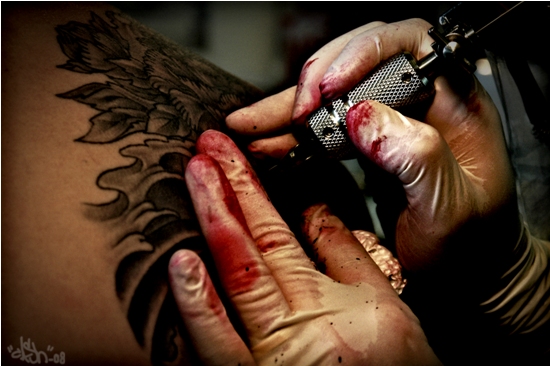
Getting yourself tattooed is a rage today. And why not, as it makes for a great style statement. We all know that getting a tattoo done is a painful process since you are inked on the skin using a needle. While, some easily wade through the process, others may experience acute itchiness or even swelling. However, do not raise an alarm so soon. Itchiness is a sign of tattoo healing and you must not under any circumstances scratch the inked area. Also, swelling is quite a common symptom in the first few days. So simply follow the ointment routine recommended by your artist and you will be fine. But some tattoo problems refuse to fade and are severe in nature. Here, we have put together a list of the most common causes for raised and itchy skin on the tattooed part.
1. Allergic reaction to ink or dye
Allergic reactions are a very common reason for itchy and raised tattoos. The reason could be due to allergy from ink. Allergic reactions from red and yellow inks are mostly observed. This reaction may not appear immediately but may take weeks, months or even years to arise. An easy to find out if itâs ink allergy is to spot if the skin is affected on the area where a particular ink is used. Ink allergies tend to be consistent, they do not come and go like other allergies. You will have to head to the dermatologist to get the treatment done in case the topical ointment fails to provide any relief. In extreme cases you might also have to get the tattoo removed.
2.The extremes of weather
Another reason for an itchy and raised tattoo could be the weather condition. Weather can lead to occasional and consistent allergies in the skin. Some suffer from symptoms during hot season, others during cold season as the skin gets dry. Increase in temperature and humidity leads to light swelling of the tattoo and results in itching. You must avoid scratching the tattoo at all costs even if the tattoo is healed. During the cold season, it is advised to use topical anti-itch ointments on the affected area along with ice packs. You must keep the skin moisturized and away from extreme change in temperature. Applying Aloe Vera gel is a natural remedy.
3. Changes in the body
Body changes such as high or low blood pressure, rise in adrenaline, change in body temperature and stress can also affect the tattoo. Pregnancy and other medical problems can also lead to such situations. You must consult a dermatologist in case home remedies and other solutions fail to provide comfort. In extreme cases, you might also have to get the tattoo removed.
4. Skin Conditions
Tattoos are very sensitive to skin conditions. A skin problem, as trivial as dry skin to something as severe as eczema, can lead to itchiness and raised skin. Hence, it is advised to consult your dermatologist prior to getting a tattoo done to avoid any repercussions.


